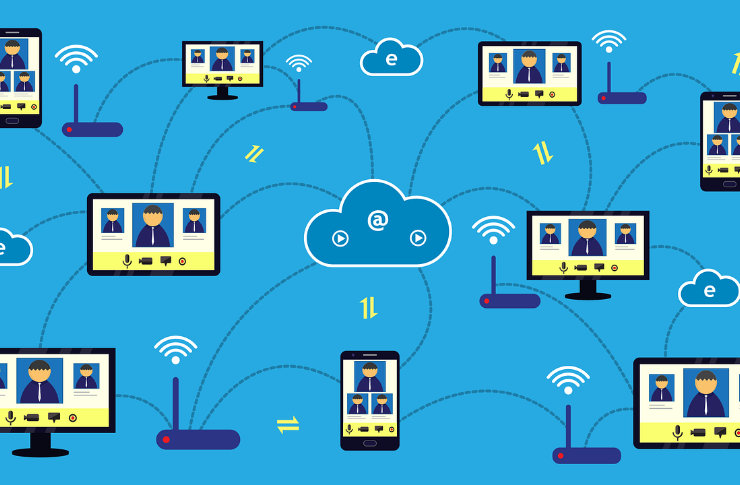Micro-Mentoring: The Future of Career Guidance
In today's fast-paced professional landscape, traditional mentoring models are evolving. Enter micro-mentoring, a revolutionary approach that's reshaping how we seek and provide career guidance. This bite-sized mentorship format offers quick, focused interactions that cater to the modern professional's need for agility and specificity in their career development journey.

The concept has its roots in the tech industry, where rapid innovation and constant upskilling are the norm. However, it has quickly spread to other sectors, proving its versatility and effectiveness across various professional fields. The rise of digital platforms and social media has further accelerated the adoption of micro-mentoring, making it easier for professionals to connect with mentors from diverse backgrounds and expertise.
How Micro-Mentoring Works
At its core, micro-mentoring is about creating purposeful, focused interactions between mentors and mentees. The process typically begins with the mentee identifying a specific challenge or area where they need guidance. This could range from navigating a particular career transition to developing a specific skill set or solving a work-related problem.
Once the need is identified, the mentee seeks out a suitable mentor through various channels, including professional networks, industry events, or dedicated micro-mentoring platforms. The key is to find someone with the right expertise and experience to address the specific issue at hand.
The micro-mentoring session itself is brief but intensely focused. It may take the form of a short phone call, a video chat, or even a series of text messages. During this interaction, the mentor provides targeted advice, shares relevant experiences, and offers actionable insights. The goal is to provide immediate value and clear direction that the mentee can apply to their situation.
Benefits of Micro-Mentoring
Micro-mentoring offers numerous advantages for both mentors and mentees. For mentees, it provides quick access to expert knowledge without the need for a long-term commitment. This is particularly beneficial for young professionals or those in rapidly evolving industries where timely guidance can make a significant difference.
The format also allows mentees to seek advice from a diverse range of mentors, each offering unique perspectives and expertise. This diversity of input can be invaluable in developing a well-rounded approach to career development and problem-solving.
For mentors, micro-mentoring offers an opportunity to give back to their industry or profession without the time commitment of traditional mentoring. It allows them to share their knowledge and experience in a focused, efficient manner, potentially reaching a wider audience of mentees.
Moreover, the brief nature of these interactions can lead to more honest and direct communication. Mentees may feel more comfortable asking challenging questions or discussing sensitive topics in a short, focused session than in a long-term mentoring relationship.
Challenges and Considerations
While micro-mentoring offers many benefits, it’s not without its challenges. One of the main criticisms is that the brief nature of the interactions may not allow for the deep, trusting relationships that often develop in traditional mentoring. There’s a risk that advice given in a short session may lack the nuance and context that comes with a longer-term understanding of the mentee’s situation.
Another potential drawback is the possibility of receiving conflicting advice from multiple mentors. While diverse perspectives can be valuable, it can also lead to confusion if not properly managed. Mentees need to develop the skill of synthesizing different viewpoints and applying them appropriately to their unique situations.
Quality control can also be an issue, particularly on open platforms where anyone can offer themselves as a mentor. It’s crucial for mentees to vet potential mentors carefully and for platforms to implement robust screening processes.
Implementing Micro-Mentoring in Organizations
Many forward-thinking organizations are now incorporating micro-mentoring into their professional development programs. This implementation can take various forms, from internal platforms that connect employees across departments for brief mentoring sessions, to partnerships with external micro-mentoring services.
To successfully implement micro-mentoring, organizations need to create a culture that values knowledge sharing and continuous learning. This involves recognizing and rewarding employees who participate as mentors, as well as providing resources and support for those seeking mentorship.
Technology plays a crucial role in facilitating micro-mentoring at scale. Many companies are developing or adopting platforms that use algorithms to match mentors and mentees based on skills, experience, and specific needs. These platforms often include features for scheduling sessions, tracking progress, and providing feedback.
The Future of Micro-Mentoring
As the concept of micro-mentoring continues to evolve, we can expect to see several trends shaping its future. Artificial intelligence and machine learning are likely to play an increasing role in matching mentors and mentees, as well as in providing personalized recommendations for mentoring topics based on an individual’s career trajectory and skill gaps.
Virtual and augmented reality technologies may also transform the micro-mentoring experience, allowing for more immersive and interactive sessions. Imagine a scenario where a mentee can virtually shadow their mentor for a short period, gaining hands-on insights into specific work situations.
We may also see the emergence of micro-mentoring networks, where professionals can build a personal board of advisors, each providing expertise in different areas. This could lead to a more holistic approach to career development, combining the benefits of diverse, focused interactions with the continuity of ongoing relationships.
In conclusion, micro-mentoring represents a dynamic and flexible approach to career guidance that aligns well with the needs of the modern workforce. While it may not entirely replace traditional mentoring, it offers a valuable complement, providing professionals with quick, targeted support as they navigate their career paths. As the concept continues to evolve and mature, it has the potential to significantly impact how we approach professional development and knowledge sharing in the workplace.




